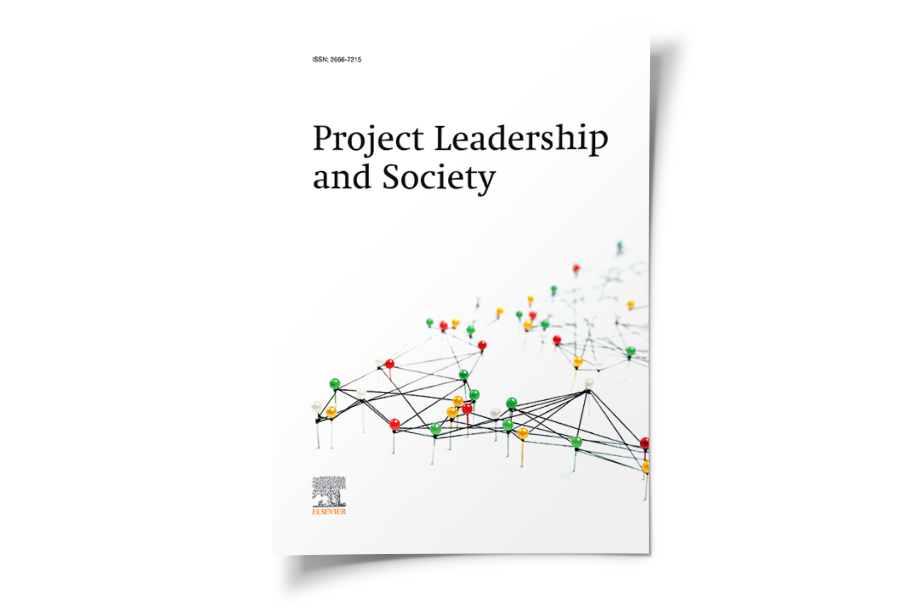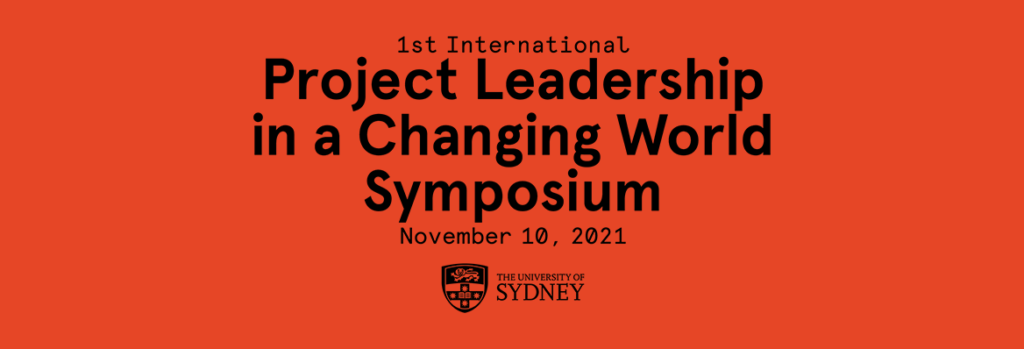The series of International Symposia are designed to share the latest thinking on project leadership across an international research, policy and practice community. The main audience for this online symposium was our international peers; a secondary audience was the international professional bodies and key client organisations. One outcome was identifying and setting up links with key groups around the world.
The Morning Session of our 2023 Third International Symposium on Project Leadership in a Changing World will be held on 9 November at 9am (AEDT) and the Evening Session will take place on 16 November 7pm (AEDT). You can view the agenda and speaker biographies below.
Agenda
November 9 (Morning Session – 9am AEDT)
9:00am – 9:15am Morning: Introductions and Welcome
Welcome:
Jennifer Whyte is Director of the John Grill Institute for Project Leadership and Head of School of Project Management, in the Faculty of Engineering at the University of Sydney (2021-).
She retains a position at Imperial College London, where she was Director of the Centre for Systems Engineering and Innovation, and the Royal Academy of Engineering and Laing O’Rourke Professor of Systems Integration in the Department of Civil and Environmental Engineering (2015-2021), and she retains an affiliation. At Stanford University (2015), she was Shimizu Visiting Professor in the Civil and Environmental Engineering Department. Her first degree is from University of Cambridge and her PhD from Loughborough University. She did postdoctoral research at SPRU, University of Sussex, and Imperial College London.
Her research has led to extensive work with industry and policy. She co-curated the World Economic Forum (WEF) ‘Engineering and Construction’ Transformation Map (2016-2019). She is on the a Senior Advisory Group (2021-) of the UK’s Construction Leadership Council (2019-2021). She sits on the UK’s EPSRC Engineering Strategic Advisory Team; is a Board Member of the ICSF ‘Transforming Construction’ Advisory Board; and previously sat on the MHCLG Building Safely Committee (2018-2019). She has worked with Singapore’s Building and Construction Authority to deliver Singapore’s Integrated Digital Delivery strategy, draw on her research to train more than 100 senior executives.
John Grill AO is the Chair of the John Grill Institute for Project Leadership and Chairman of the Board of international resources and energy company WorleyParsons Limited. A prominent Australian business figure, he has been a key supporter of the University of Sydney’s project management research and education initiatives for over a decade – seeking to inspire the next generation of project leaders.
In 2010, John was recognised for his contribution to the engineering profession with an honorary doctorate from the University of Sydney. The close relationship with his alma mater continued and led to the establishment of the John Grill Centre for Project Leadership through a $20 million donation upon his retirement in as Worley CEO in October 2012.
Mr Grill was appointed an Officer of the Order of Australia in January 2014 in recognition of his contribution to engineering and business in the minerals, energy and power supply industries as well as his commitment to education and training. In 2019, he was awarded an honorary doctorate from the University of New South Wales (UNSW).
John also serves as Chairman of the Mindgardens Neuroscience Network - a partnership between the Black Dog Institute, Neuroscience Research Australia (NeuRA), South Eastern Sydney Local Health District (SESLHD) and the University of New South Wales.
| Auckland | 11:00am |
| Beijing | 6:00am |
| Berlin | 11:00pm |
| Brisbane | 8:00am |
| Doha | 1:00am |
| Hong Kong | 6:00am |
| London | 10:00pm |
| Los Angeles | 2:00pm |
| Mexico City | 4:00pm |
| New York | 5:00pm |
| Shanghai | 6:00am |
| Singapore | 6:00am |
| Tokyo | 7:00am |
| Zurich | 11:00pm |
9:15am – 9.50am Session 1: Project Teams and Project Leadership
Chair:
Associate Professor Julien Pollack is the Deputy Director of the John Grill Institute for Project Leadership and Research Director at the School of Project Management, University of Sydney. His career in project management began in the Australian public sector delivering organizational change projects - completing an Action Research Ph.D. that won national and international awards. After managing multiple telecommunications and heavy engineering projects, Professor Pollack became an academic in 2011 and joined the University of Sydney in 2016. His research has focused on two broad themes: trends in project management research; and developing project management practice to meet the needs of projects that cannot be pre-defined in simple and stable terms.
Project leadership increasingly occurs in the context of increasing risks, requiring adaptability to change, especially as projects grow in duration and complexity. With a focus on the emerging demands that are placed on project leaders and teams, we explore the ways that our existing narrative of project leadership and cultures of team management need to grow to meet capability and lifecycle constraints.
Framing Questions:
- How do our expectations of project leaders need to change to meet the demands of increasing risk and complexity?
- What approaches can leaders use to move teams from an expectation of competition to collaboration?
- Is it reasonable to expect a single individual to lead through all phases of a major project, and if not, what are the implications?
Panel Speakers:
Sonya Campbell is the Deputy Secretary, Commercial at New South Wales Treasury and a member of the John Grill Institute for Project Leadership’s Advisory Board. Having worked for over 20 years in infrastructure procurement and delivery, she has extensive experience advising government and the private sector on commercial and financial structuring, governance and risk management on complex infrastructure projects. Ms Campbell joined NSW Treasury in September 2018 as Director of the Infrastructure and Structured Finance Unit and has since served as its Executive Director and Head, as well as Deputy Secretary (Acting) of Commercial and Procurement prior to her current role. Before joining NSW Treasury she held senior roles at PwC Australia and Lendlease.
Stewart Clegg is a Professor at the School of Project Management at the University of Sydney and a member of the John Grill Institute for Project Leadership’s Internal Management Group. He is a world-leading researcher in the fields of organisation studies, power and project management – contributing to over 300 articles in top-tier journals and authoring/editing over 50 books. Professor Clegg is a Virtual Visiting Professor at University of Stavanger, Norway and the Nova School of Business and Economics, Portugal. He has also held roles at at the University of Technology, Sydney since 1976.
Dr Jeffrey Pinto is a Professor of Management, Project and Supply Chain Management at the Pennsylvania State University and holds the Andrew Morrow and Elizabeth Lee Black Chair in the Management of Technology in the Sam and Irene Black School of Business. He has consulting experience with a number of major organisations – including General Electric Company and PPG Industries. Dr Pinto has received the Project Management Institute’s Distinguished Contribution Award for outstanding service to the profession on two occasions and its 2009 Research Achievement Award for outstanding contributions to project management research.
| Auckland | 11:15am |
| Beijing | 6:15am |
| Berlin | 11:15pm |
| Brisbane | 8:15am |
| Doha | 1:15am |
| Hong Kong | 6:15am |
| London | 10:15pm |
| Los Angeles | 2:15pm |
| Mexico City | 4:14pm |
| New York | 5:15pm |
| Shanghai | 6:15am |
| Singapore | 6:15am |
| Tokyo | 7:15am |
| Zurich | 11:15pm |
9:50am –10.25am Session 2: Collaborative Contracts, Project Governance and Set-Up
Chair:
Nuno Gil is a Professor of New Infrastructure Development at the University of Manchester’s Alliance Manchester Business School and a visiting Professor at the John Grill Institute for Project Leadership, University of Sydney. His research focuses on the design of structures and processes to create economic and social value. Professor Gil has worked with a number of major government and private sector organisations in the United Kingdom including the London 2012 Olympics, High Speed 2 rail and UK Cabinet – as well as globally with UN-Habitat in Egypt, Japan International Cooperation Agency (JICA) and the Uganda National Roads Authority (UNRA). In 2013, he co-founded the annual workshop series, Megaprojects Workshop: Theory meets Practice.
Whilst capital-intensive, project-based sectors have made remarkable progress towards the use of collaborative supplier contracts, the governance of relationships with local communities, local authorities, interest groups, activists and other non-user groups has received much less attention. And yet, as pressure mounts for major projects to produce socially valuable outcomes, good management of these so-called nonmarket stakeholder relationships is critical if projects are to meet traditional performance expectations.
Framing Questions:
- What is the value of investing in community benefit agreements?
- Where to draw the line when dealing with activist groups?
- What criteria are available to determine the legitimacy of nonmarket stakeholder claims?
- What conflict-resolution structures are available in the context?
Panel Speakers:
Gemma Whittick is the A/Delivery Director, Sydney Metro for Bechtel Civil Infrastructure. In over a decade with Bechtel, she has worked on major infrastructure projects in Australia and abroad – including as a Principal Delivery Engineer on London’s Crossrail and Chief Mechanical Engineer. Ms Whittick’s experience in the sector spans over a decade, and also includes roles at GBM Minerals Engineering Consultants and Rio Tinto.
Kate Odziemkowska is an Assistant Professor of Strategic Management at the Rotman School of Management, University of Toronto. Her research focuses on nonmarket strategy – with a particular emphasis on formal collaborations and contracts with nonmarket stakeholders such as activists and communities. Ms Odziemkowska serves on the Editorial Boards of the Academy of Management Journal, Organization Science, and the Strategic Management Journal.
Peter Colacino is a Partner at Avista Strategy - a strategic consultancy for the infrastructure industry with the ambition on ensuring projects deliver on their promises and potential. He has over 15 years’ experience working with government, academia and industry – recently leading policy development and reform for Infrastructure Australia. Peter has contributed to over 50 policy and planning documents, such as the 2021 Australian Infrastructure Plan. He previously held roles at public transport operator Keolis Downer, and motorway operator Transurban.
| Auckland | 11:50am |
| Beijing | 6:50am |
| Berlin | 11:50pm |
| Brisbane | 8:50am |
| Doha | 1:50am |
| Hong Kong | 6:50am |
| London | 10:50pm |
| Los Angeles | 2:50pm |
| Mexico City | 4:50pm |
| New York | 5:50pm |
| Shanghai | 6:50am |
| Singapore | 6:50am |
| Tokyo | 7:50am |
| Zurich | 11:50pm |
10:25am –11:25am Research Keynotes in Brief
Alliancing and Collaboration on Projects
Derek Walker is an Emeritus Professor at the School of Property, Construction and Project Management, RMIT University, Melbourne. His research has a particular focus on in infrastructure integrated project delivery and Alliancing. In 2018 Emeritus Professor Walker won the International Project Management Association (IPMA) research excellence award for life time achievements in project management research. He has published over 100 refereed scientific journal papers and 70 book chapters.
Organising Responses to Climate Change: Mitigation, Adaptation and Suffering as Political Projects?
Christopher Wright is Professor of Organisational Studies at the University of Sydney Business School where he teaches and researches organisational change, management innovation, sustainability and critical understandings of capitalism and political economy. His current research explores organizational and societal responses to climate change, with a particular focus on how managers and business organizations interpret and respond to the climate crisis. Professor Wright’s research on climate change and business is internationally recognised and he has developed research collaborations with leading international climate scientists and global environmental organisations. He is a key researcher at the Sydney Environment Institute, where he heads up a group examining corporate climate transition.
The Capital Project Dilemma
Nuno Gil is a Professor of New Infrastructure Development at the University of Manchester’s Alliance Manchester Business School and a visiting Professor at the John Grill Institute for Project Leadership, University of Sydney. His research focuses on the design of structures and processes to create economic and social value. Professor Gil has worked with a number of major government and private sector organisations in the United Kingdom including the London 2012 Olympics, High Speed 2 rail and UK Cabinet – as well as globally with UN-Habitat in Egypt, Japan International Cooperation Agency (JICA) and the Uganda National Roads Authority (UNRA). In 2013, he co-founded the annual workshop series, Megaprojects Workshop: Theory meets Practice.
How Datafication is Reshaping the Project Management Sandbox?
Alejandro Romero-Torres is a Professor in Project Management and Director at the Laboratory of Innovative Practices in Project Context (PICoP), University of Quebec at Montreal. He is also a Global Accreditation Center (GAC) Director at the Project Management Institute. Professor Romero-Torres’ areas of expertise include: information technology adoption, digital transformation of organizations and major engineering and construction projects. His work has appeared in publications such as the Journal of Modern Project Management, World Journal of Social Sciences, and International Journal of Energy and Environment.
Innovation and Impact of Emerging Technologies in Project Management
Dr Muhammad Odeh is an Assistant Teaching Professor in Project and Supply Chain Management at the Pennsylvania State University, Behrend. He spent nine years as a Principal of Data Center Solutions and Global Service lead at Dell EMC and seven years as a Director of Program Delivery for Europe South, Africa and the Middle East. Mr Odeh’s research interests include innovation in project management and PMOs, risk and quality management, cybersecurity and social responsibility, and the impact of emerging and disruptive technologies on project management. His work has recently been published in the Institute of Electrical and Electronics Engineers (IEEE) Engineering Management Review.
Megaprojects, Future-Making and Projects as Interventions
Jennifer Whyte is Director of the John Grill Institute for Project Leadership and Head of School of Project Management, in the Faculty of Engineering at the University of Sydney (2021-).
She retains a position at Imperial College London, where she was Director of the Centre for Systems Engineering and Innovation, and the Royal Academy of Engineering and Laing O’Rourke Professor of Systems Integration in the Department of Civil and Environmental Engineering (2015-2021), and she retains an affiliation. At Stanford University (2015), she was Shimizu Visiting Professor in the Civil and Environmental Engineering Department. Her first degree is from University of Cambridge and her PhD from Loughborough University. She did postdoctoral research at SPRU, University of Sussex, and Imperial College London.
Her research has led to extensive work with industry and policy. She co-curated the World Economic Forum (WEF) ‘Engineering and Construction’ Transformation Map (2016-2019). She is on the a Senior Advisory Group (2021-) of the UK’s Construction Leadership Council (2019-2021). She sits on the UK’s EPSRC Engineering Strategic Advisory Team; is a Board Member of the ICSF ‘Transforming Construction’ Advisory Board; and previously sat on the MHCLG Building Safely Committee (2018-2019). She has worked with Singapore’s Building and Construction Authority to deliver Singapore’s Integrated Digital Delivery strategy, draw on her research to train more than 100 senior executives.
| Auckland | 12:25pm |
| Beijing | 7:25am |
| Berlin | 12:25am |
| Brisbane | 9:25am |
| Doha | 2:25am |
| Hong Kong | 7:25am |
| London | 11:25pm |
| Los Angeles | 3:25pm |
| Mexico City | 5:25pm |
| New York | 6:25pm |
| Shanghai | 7:25am |
| Singapore | 7:25am |
| Tokyo | 8:25am |
| Zurich | 12:25am |
11:25 -12:00pm Breakout Groups
Group 1: Project Analytics in a changing world
Dr Nader Naderpajouh is a Senior Lecturer, Director of Research Education and Post Graduate Coordinator at the School of Project Management and member of the John Grill Institute for Project Leadership’s Internal Management Group. He leads the Organising for Resilience in the Built Environment (ORIBE) research group and holds an honorary position at RMIT University. Dr Naderpajouh primarily focuses his research on collective actions and organising across social, technical and ecological systems - with a portfolio of research grants totalling over A$14M. He serves as an Associate Editor for journals including the Journal of Management in Engineering by the American Society of Civil Engineers (ASCE), and as a member of the Editorial Board of journals including the International Journal of Project Management (IJPM).
David Porter is the co-founder and Managing Director of Octant AI – a Brisbane-based Artificial Intelligence platform with a vision to utilise technology to sustainably reduce project overruns and create a paradigm change in projects. He holds a Master of Science, Major Project Management from the University of Oxford. With Octant AI, David has worked with organisations such as the World Bank, Hong Kong Development Bureau and Queensland Department of Transport and Main Roads.
Group 2: Collaborative Contracts, Project Governance and Set-Up
Derek Walker is an Emeritus Professor at the School of Property, Construction and Project Management, RMIT University, Melbourne. His research has a particular focus on in infrastructure integrated project delivery and Alliancing. In 2018 Emeritus Professor Walker won the International Project Management Association (IPMA) research excellence award for life time achievements in project management research. He has published over 100 refereed scientific journal papers and 70 book chapters.
Group 3: Achieving Net Zero: Projects as Interventions
Nuno Gil is a Professor of New Infrastructure Development at the University of Manchester’s Alliance Manchester Business School and a visiting Professor at the John Grill Institute for Project Leadership, University of Sydney. His research focuses on the design of structures and processes to create economic and social value. Professor Gil has worked with a number of major government and private sector organisations in the United Kingdom including the London 2012 Olympics, High Speed 2 rail and UK Cabinet – as well as globally with UN-Habitat in Egypt, Japan International Cooperation Agency (JICA) and the Uganda National Roads Authority (UNRA). In 2013, he co-founded the annual workshop series, Megaprojects Workshop: Theory meets Practice.
Peter Colacino is a Partner at Avista Strategy - a strategic consultancy for the infrastructure industry with the ambition on ensuring projects deliver on their promises and potential. He has over 15 years’ experience working with government, academia and industry – recently leading policy development and reform for Infrastructure Australia. Peter has contributed to over 50 policy and planning documents, such as the 2021 Australian Infrastructure Plan. He previously held roles at public transport operator Keolis Downer, and motorway operator Transurban.
Group 4: Project Teams and Project Leadership
Jennifer Whyte is Director of the John Grill Institute for Project Leadership and Head of School of Project Management, in the Faculty of Engineering at the University of Sydney (2021-).
She retains a position at Imperial College London, where she was Director of the Centre for Systems Engineering and Innovation, and the Royal Academy of Engineering and Laing O’Rourke Professor of Systems Integration in the Department of Civil and Environmental Engineering (2015-2021), and she retains an affiliation. At Stanford University (2015), she was Shimizu Visiting Professor in the Civil and Environmental Engineering Department. Her first degree is from University of Cambridge and her PhD from Loughborough University. She did postdoctoral research at SPRU, University of Sussex, and Imperial College London.
Her research has led to extensive work with industry and policy. She co-curated the World Economic Forum (WEF) ‘Engineering and Construction’ Transformation Map (2016-2019). She is on the a Senior Advisory Group (2021-) of the UK’s Construction Leadership Council (2019-2021). She sits on the UK’s EPSRC Engineering Strategic Advisory Team; is a Board Member of the ICSF ‘Transforming Construction’ Advisory Board; and previously sat on the MHCLG Building Safely Committee (2018-2019). She has worked with Singapore’s Building and Construction Authority to deliver Singapore’s Integrated Digital Delivery strategy, draw on her research to train more than 100 senior executives.
Associate Professor Julien Pollack is the Deputy Director of the John Grill Institute for Project Leadership and Research Director at the School of Project Management, University of Sydney. His career in project management began in the Australian public sector delivering organizational change projects - completing an Action Research Ph.D. that won national and international awards. After managing multiple telecommunications and heavy engineering projects, Professor Pollack became an academic in 2011 and joined the University of Sydney in 2016. His research has focused on two broad themes: trends in project management research; and developing project management practice to meet the needs of projects that cannot be pre-defined in simple and stable terms.
| Auckland | 1:25pm |
| Beijing | 8:25am |
| Berlin | 1:25am |
| Brisbane | 10:25am |
| Doha | 3:25am |
| Hong Kong | 8:25am |
| London | 12:25am |
| Los Angeles | 4:25pm |
| Mexico City | 6:25pm |
| New York | 7:25pm |
| Shanghai | 8:25am |
| Singapore | 8:25am |
| Tokyo | 9:25am |
| Zurich | 1:25am |
November 16 (Evening Session – 7pm AEDT)
6:30pm – 6:40pm Evening: Introductions and Welcome
Welcome:
Jennifer Whyte is Director of the John Grill Institute for Project Leadership and Head of School of Project Management, in the Faculty of Engineering at the University of Sydney (2021-).
She retains a position at Imperial College London, where she was Director of the Centre for Systems Engineering and Innovation, and the Royal Academy of Engineering and Laing O’Rourke Professor of Systems Integration in the Department of Civil and Environmental Engineering (2015-2021), and she retains an affiliation. At Stanford University (2015), she was Shimizu Visiting Professor in the Civil and Environmental Engineering Department. Her first degree is from University of Cambridge and her PhD from Loughborough University. She did postdoctoral research at SPRU, University of Sussex, and Imperial College London.
Her research has led to extensive work with industry and policy. She co-curated the World Economic Forum (WEF) ‘Engineering and Construction’ Transformation Map (2016-2019). She is on the a Senior Advisory Group (2021-) of the UK’s Construction Leadership Council (2019-2021). She sits on the UK’s EPSRC Engineering Strategic Advisory Team; is a Board Member of the ICSF ‘Transforming Construction’ Advisory Board; and previously sat on the MHCLG Building Safely Committee (2018-2019). She has worked with Singapore’s Building and Construction Authority to deliver Singapore’s Integrated Digital Delivery strategy, draw on her research to train more than 100 senior executives.
| Auckland | 8:30pm |
| Beijing | 3:30pm |
| Berlin | 8:30am |
| Brisbane | 5:30pm |
| Doha | 10:30am |
| Hong Kong | 3:30pm |
| London | 7:30am |
| Los Angeles | 11:30pm |
| Mexico City | 1:30am |
| New York | 2:30am |
| Shanghai | 3:30pm |
| Singapore | 3:30pm |
| Tokyo | 4:30pm |
| Zurich | 8:30am |
6:40pm – 7:15pm Session 3: Projects for Resilience in a Changing World
Chair:
Dr Nader Naderpajouh is a Senior Lecturer, Director of Research Education and Post Graduate Coordinator at the School of Project Management and member of the John Grill Institute for Project Leadership’s Internal Management Group. He leads the Organising for Resilience in the Built Environment (ORIBE) research group and holds an honorary position at RMIT University. Dr Naderpajouh primarily focuses his research on collective actions and organising across social, technical and ecological systems - with a portfolio of research grants totalling over A$14M. He serves as an Associate Editor for journals including the Journal of Management in Engineering by the American Society of Civil Engineers (ASCE), and as a member of the Editorial Board of journals including the International Journal of Project Management (IJPM).
Projects do not have a good track record. They have been used extensively as part of the industrial, colonial endeavour that has led to a changing climate. With a focus on short-term gain, large projects in both the developed and developing world have destroyed first nations heritage, been imposed on communities, and displaced peoples. How can we change this track? How do projects in the changing world look like?
Framing Questions:
- The latest IPCC report asks for immediate, sizeable and meaningful action. What is the role of projects in this urgent context?
- What is the role of project leaders in a changing world?
- How different is the context of project leadership in a changing world than common forms of leadership?
Panel Speakers:
Professor Martina Linnenluecke is the Director of the Center for Corporate Sustainability and Environmental Finance at Macquarie University, Sydney. Her research focuses on the strategic and financial implications of corporate adaptation and resilience to climate change impacts. Professor Linnenluecke has extensive experience working with government and industry on climate adaptation strategies – and is a chief investigator on several ongoing major research grants. Her work has been recognised through multiple awards, including the Carolyn Dexter Best International Paper Award at the Academy of Management Conference. She is a contributing author to the Intergovernmental Panel on Climate Change (IPCC) Sixth Assessment Report and a member of the Australian Research Council (ARC) College of Experts.
Markus Hällgren is a Professor of Business Administration at the School of Economics, Umeå University, Sweden. He directs the research program Extreme Environments, Everyday Decisions – which examines leadership and team behaviour in extreme contexts – and runs the international research network Organizing extreme contexts. Professor Hällgren has been published in journals such as The Academy of Management Annals, European Management Journal, Scandinavian Journal of Management, and International Journal of Project Management.
Chris Quin is the director and founder of Resilient Projects – a Brisbane-based project management consultancy that specialises in managing projects that increase preparedness and enhance resilience. He has a strong track record of delivering resilience and disaster risk reduction solutions to state and local governments, emergency services and utility providers. A member of the Queensland State Emergency Service, Mr Quin has been awarded the National Emergency Medal on two occasions.
| Auckland | 8:40pm |
| Beijing | 3:40pm |
| Berlin | 8:40am |
| Brisbane | 5:40pm |
| Doha | 10:40am |
| Hong Kong | 3:40pm |
| London | 7:40am |
| Los Angeles | 11:40pm |
| Mexico City | 1:40am |
| New York | 2:40am |
| Shanghai | 3:40pm |
| Singapore | 3:40pm |
| Tokyo | 4:40pm |
| Zurich | 8:40am |
7:15pm – 8.15pm Short Research Presentations [Breakout Rooms]
*Denotes presenter
Room 1: Project Leadership for a Sustainable Future
Chair:
Dr Luigi Mosca is a postdoctoral research associate at the Center for Systems Engineering and Innovation, at Imperial College London. His research focuses on the intersection of organisation theory, entrepreneurship, and strategic management – with particular emphasis on different forms of online and offline organizing, novel organizational design forms as well as sustainable business model innovation. As part of the Transforming Construction Network Plus project - a joint venture between the Imperial College London, University College London, and Warwick Manufacturing Group – Dr Mosca explored how novel digital technologies enable business model innovation in mature industries such as the construction industry.
Presentations:
- Jose Rodrigo Juarez Cornelio, University of Leeds*
- Dr Tristano Sainati, University of Leeds
- Professor Giorgio Locatelli, Polytechnic University of Milan
- Robert E. Bierwolf, Dutch Ministry of the Interior/Center for Technology & Innovation Management*
- Pieter Frijns, Dutch Ministry of the Interior
- Dr Dicle Kortantamer, University of Leeds*
- Dr Eunice Maytorena-Sanchez, Alliance Manchester Business School, University of Manchester*
- Dr Natalya Sergeeva, The Bartlett School of Sustainable Construction, University College London
- Professor Graham Winch, Alliance Manchester Business School, University of Manchester
Room 2: Collaborative Approaches and Stakeholder Management
Chair:
Natalya Sergeeva is an Associate Professor at The Bartlett School of Sustainable Construction, University College London and a visiting academic at Alliance Manchester Business School, Manchester University and University of Reading. Her research focuses on understanding of the ways managers and leaders construct and communicate their narratives and stories and the implications for meaning making, identity work policy making and strategizing. Associate Professor Sergeeva sits at the editorial board of Project Management Journal and has regularly had work published in the International Journal of Project Management, Project Management Journal, Construction Management and Economics, Industrial Marketing Management, International Journal of Innovation Management, European Journal of Innovation Management, Creativity and Innovation Management, Construction Innovation, Engineering Project Organisation Journals.
Presentations:
- Associate Professor Vedran Zerjav, The Bartlett Faculty of the Built Environment, University College London*
- Dr Francesco Di Maddaloni, The Bartlett Faculty of the Built Environment, University College London
- Maria Gradillas-Garcia, The Bartlett Faculty of the Built Environment, University College London
- Dr Luca Sabini, University of Leeds*
- Professor Daniel Muzio, University of York
- Professor Stewart Clegg, University of Sydney
- Daniel M. Hall, Delft University of Technology*
- Dr Marcella Bonanomi, PoliS-Lombardia
- Dr Tristano Sainati, School of Civil Engineering, University of Leeds*
- Dr Armando Castro, The Bartlett School of Sustainable Construction, University College London
- Giacomo Dei, School of Management, Polytechnic University of Milan
- Professor Giorgio Locatelli, School of Management, Polytechnic University of Milan
- Professor Jacqui Glass, The Bartlett School of Sustainable Construction, University College London
| Auckland | 9:15pm |
| Beijing | 4:15pm |
| Berlin | 9:15am |
| Brisbane | 6:15pm |
| Doha | 11:15am |
| Hong Kong | 4:15pm |
| London | 8:15am |
| Los Angeles | 12:15am |
| Mexico City | 2:15am |
| New York | 3:15am |
| Shanghai | 4:15pm |
| Singapore | 4:15pm |
| Tokyo | 5:15pm |
| Zurich | 9:15am |
8:15pm – 8.50pm Session 4: Achieving Net Zero: Projects as Interventions
Chair:
Dr Mahshid Tootoonchy is a Lecturer at the School of Project Management, University of Sydney. She is a former lecturer at Operations Management, Supply Chain Management, and Project Management at Sharif University of Technology, Iran. Prior to academia, Dr Tootoonchy worked with leading international organizations in Oil & Gas industry, including BP.
Coping with climate changes requires dynamic planning for efficient use of existing infrastructure, smart integration of new technology, and balancing economic growth and social sustainability. Projects as sudden or modular interventions facilitate the optimisation of supply chains and aggregation of consumer behaviour with operations’ planning. Our experts will discuss challenges of scenario planning to achieve net-zero, green vs. brown field projects, and the behavioural view of provisions.
Framing Questions:
- How can projects act as interventions to achieve net zero?
- How can scholars collaborate to improve delivery, supply-chains and technologies for a net-zero future?
- What are the associated research challenges?
Panel Speakers:
Daniel Armanios is the BT Professor of Major Programme Management at the Saïd Business School, University of Oxford. He is also a Distinguished Visiting Professor of Leadership at Tsinghua University, China. Professor Armanios’ research and teaching integrate civil engineering and organizational sociology to better understand how organizations coordinate to build, manage, and maintain infrastructure systems. His findings aim to inform efforts to advance sustainable development, entrepreneurship, and innovation, while also alleviating systemic and persistent inequities.
Giorgio Locatelli is a Full Professor of Complex Projects Business at the Polytechnic University of Milan, Italy. His research focus is project management and complex project business – with expertise in the energy, nuclear and space sectors. Professor Locatelli has advised public and private organisations, including the IAEA, ANL, and UK government. He has been a Senior Editor of the Project Management Institute’s Project Management Journal since 2018.
Ali Abbas is a Professor of Chemical Engineering and Acting Head of the School of Chemical and Biomolecular Engineering, University of Sydney. He is a SOAR fellow and Founding Director of the Waste Transformation Research Hub - a national centre aimed at addressing the waste industry’s research and technological challenges. Professor Abbas has 20 years’ experience in the field of Process Systems Engineering and has recently been working on circular economy transitions and identifying ways to translate the circular economy principles into practice. As a leading Australian figure in circular economy, he Chairs the Australian Circular Economy Conference.
| Auckland | 10:15pm |
| Beijing | 5:15pm |
| Berlin | 10:15am |
| Brisbane | 7:15pm |
| Doha | 12:15pm |
| Hong Kong | 5:15pm |
| London | 9:15am |
| Los Angeles | 1:15am |
| Mexico City | 3:15am |
| New York | 4:15am |
| Shanghai | 5:15pm |
| Singapore | 5:15pm |
| Tokyo | 6:15pm |
| Zurich | 10:15am |
8:50pm – 9.00pm Final Comments & Best Research Presentation Award
Closing Words:
Jennifer Whyte is Director of the John Grill Institute for Project Leadership and Head of School of Project Management, in the Faculty of Engineering at the University of Sydney (2021-).
She retains a position at Imperial College London, where she was Director of the Centre for Systems Engineering and Innovation, and the Royal Academy of Engineering and Laing O’Rourke Professor of Systems Integration in the Department of Civil and Environmental Engineering (2015-2021), and she retains an affiliation. At Stanford University (2015), she was Shimizu Visiting Professor in the Civil and Environmental Engineering Department. Her first degree is from University of Cambridge and her PhD from Loughborough University. She did postdoctoral research at SPRU, University of Sussex, and Imperial College London.
Her research has led to extensive work with industry and policy. She co-curated the World Economic Forum (WEF) ‘Engineering and Construction’ Transformation Map (2016-2019). She is on the a Senior Advisory Group (2021-) of the UK’s Construction Leadership Council (2019-2021). She sits on the UK’s EPSRC Engineering Strategic Advisory Team; is a Board Member of the ICSF ‘Transforming Construction’ Advisory Board; and previously sat on the MHCLG Building Safely Committee (2018-2019). She has worked with Singapore’s Building and Construction Authority to deliver Singapore’s Integrated Digital Delivery strategy, draw on her research to train more than 100 senior executives.
Best Research Presentation Award:
Dr Mehdi Rajabi Asadabadi is a lecturer at the School of Project Management, University of Sydney. His research focus is expanding knowledge on project and operations management by developing and applying innovative operational research tools and techniques to address problems in large-scale projects. Dr Rajabi Asadabadi has worked on common problems in government projects, ranging from requirement specification to project benefits management. His research has been published journals such as the European Journal of Operational Research, Decision Support Systems, Knowledge Based Systems, and Business and Industrial Marketing.
Jose Rodrigo Juarez Cornelio is a PhD Candidate in Project Management at the University of Leeds. He was recently elected Chair of the FIDIC Future Leaders Advisory Council – which represents over one million engineering professionals and 40,000 firms in more than 100 countries worldwide. Mr Juarez also works as Consultant for Mexican firm FOA Consulting – where he has held multiple roles since 2016.
| Auckland | 10:50pm |
| Beijing | 5:50pm |
| Berlin | 10:50am |
| Brisbane | 7:50pm |
| Doha | 12:50pm |
| Hong Kong | 5:50pm |
| London | 9:50am |
| Los Angeles | 1:50am |
| Mexico City | 3:50am |
| New York | 4:50am |
| Shanghai | 5:50pm |
| Singapore | 5:50pm |
| Tokyo | 6:50pm |
| Zurich | 10:50am |
Call for Papers – Special Collection: Project Leadership in a Changing World
As we face a changing world, we need to think differently about projects and their leadership. This special collection titled “Project Leadership in a Changing World” is an opportunity to examine the perspectives on leadership that are important to positively intervening in a changing world, in which the natural environment, technologies and society are in flux.
For more information and instructions on how to submit you paper, please click here.
The 1st International Symposium on Project Leadership in a Changing World was held online on 10 November 2021.
Click here to access the agenda, videos of the sessions and other details of this symposium.


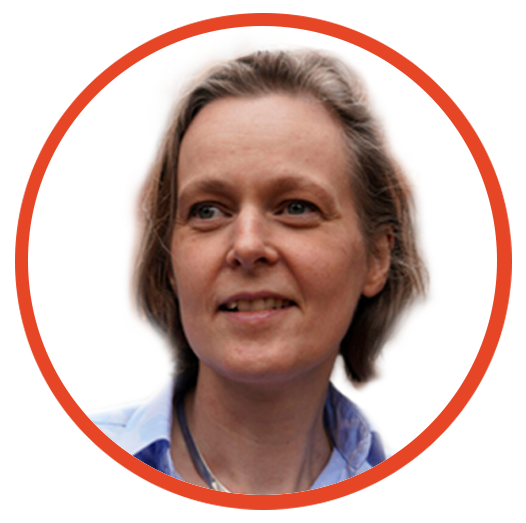 Professor Jennifer Whyte (Institute Director)
Professor Jennifer Whyte (Institute Director)
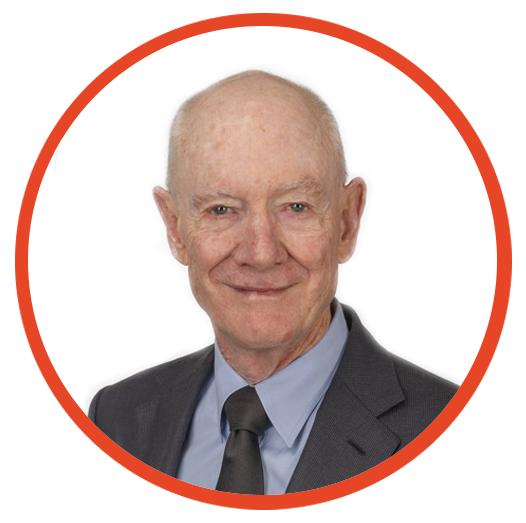 John Grill AO
John Grill AO
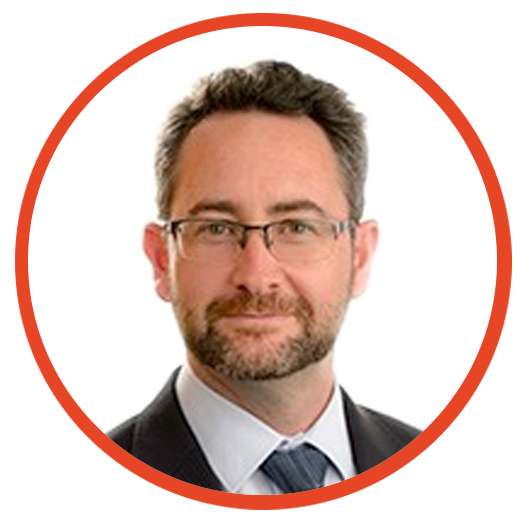 Associate Professor Julien Pollack, University of Sydney
Associate Professor Julien Pollack, University of Sydney
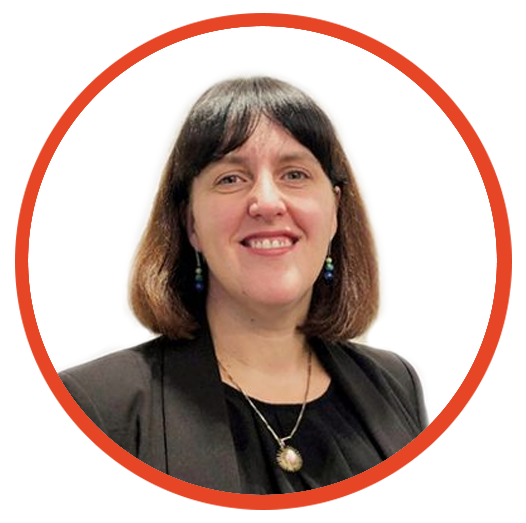 Sonya Campbell, NSW Treasury
Sonya Campbell, NSW Treasury
 Professor Stewart Clegg, University of Sydney
Professor Stewart Clegg, University of Sydney
 Dr Jeffrey K. Pinto, Pennsylvania State University
Dr Jeffrey K. Pinto, Pennsylvania State University
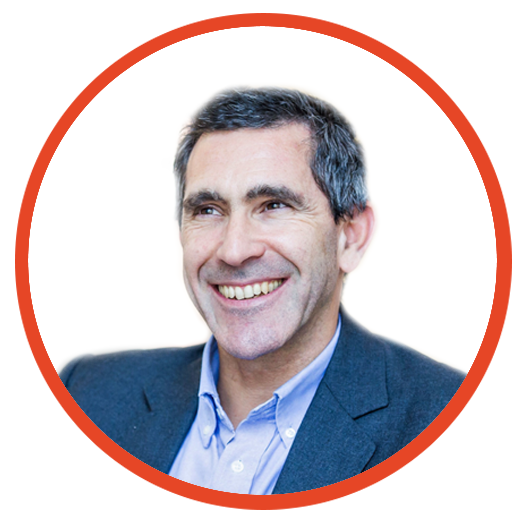 Professor Nuno Gil, University of Sydney/Alliance Manchester Business School
Professor Nuno Gil, University of Sydney/Alliance Manchester Business School
 Gemma Whittick, Bechtel Civil Infrastructure
Gemma Whittick, Bechtel Civil Infrastructure
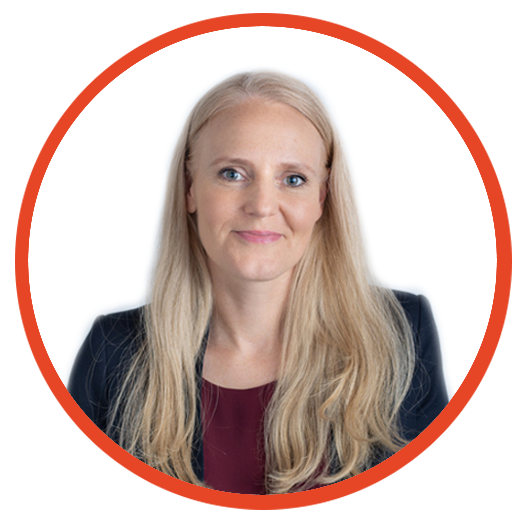 Kate Odziemkowska, University of Toronto
Kate Odziemkowska, University of Toronto
 Peter Colacino, Avista Strategy
Peter Colacino, Avista Strategy
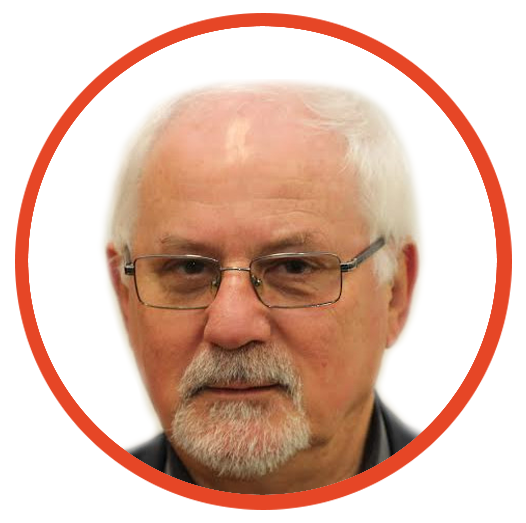 Emeritus Professor Derek Walker, RMIT University
Emeritus Professor Derek Walker, RMIT University
 Professor Christopher Wright, University of Sydney
Professor Christopher Wright, University of Sydney
 Professor Alejandro Romero-Torres, University of Quebec at Montreal
Professor Alejandro Romero-Torres, University of Quebec at Montreal
 Dr Muhammad Odeh, Pennsylvania State University
Dr Muhammad Odeh, Pennsylvania State University
 Dr Nader Naderpajouh, University of Sydney
Dr Nader Naderpajouh, University of Sydney
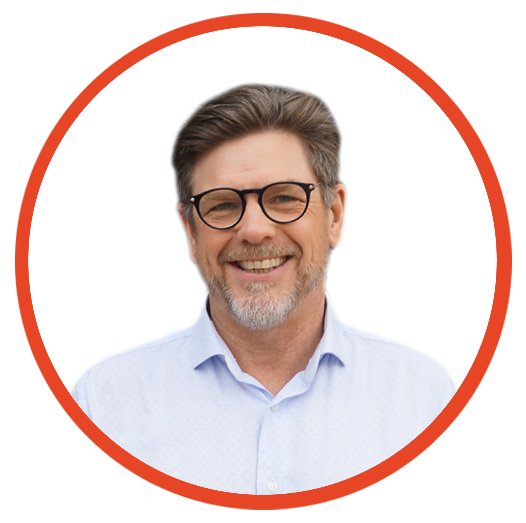 David Porter, Octant AI
David Porter, Octant AI
 Professor Martina Linnenluecke, Macquarie University
Professor Martina Linnenluecke, Macquarie University
 Professor Markus Hällgren, Umeå University
Professor Markus Hällgren, Umeå University
 Chris Quin, Resilient Projects
Chris Quin, Resilient Projects
 Dr Luigi Mosca, Imperial College London
Dr Luigi Mosca, Imperial College London
 Associate Professor Natalya Sergeeva, University College London
Associate Professor Natalya Sergeeva, University College London
 Dr Mahshid Tootoonchy, University of Sydney
Dr Mahshid Tootoonchy, University of Sydney
 Professor Daniel Armanios, University of Oxford
Professor Daniel Armanios, University of Oxford
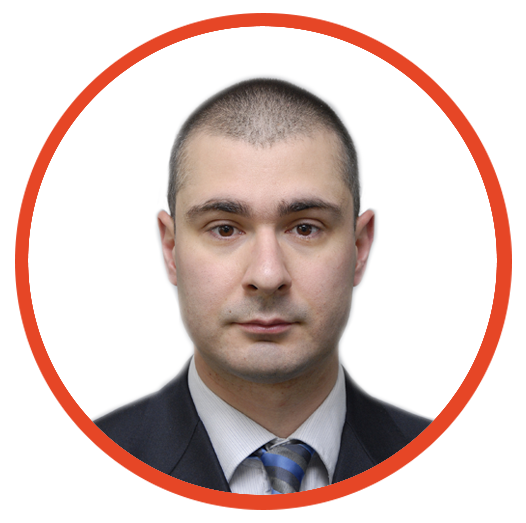 Professor Giorgio Locatelli, Polytechnic University of Milan
Professor Giorgio Locatelli, Polytechnic University of Milan
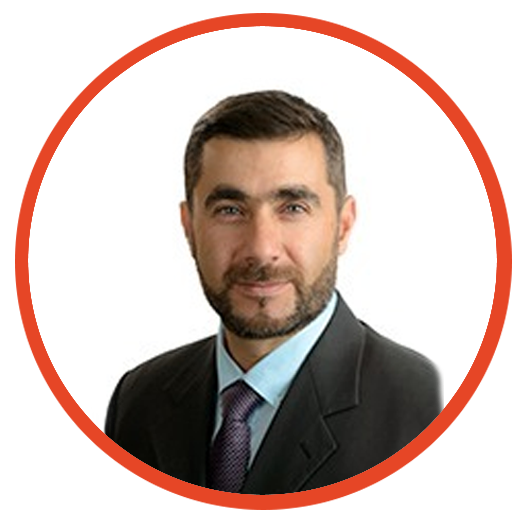 Professor Ali Abbas, University of Sydney
Professor Ali Abbas, University of Sydney
 Dr Mehdi Rajabi Asadabadi, University of Sydney
Dr Mehdi Rajabi Asadabadi, University of Sydney
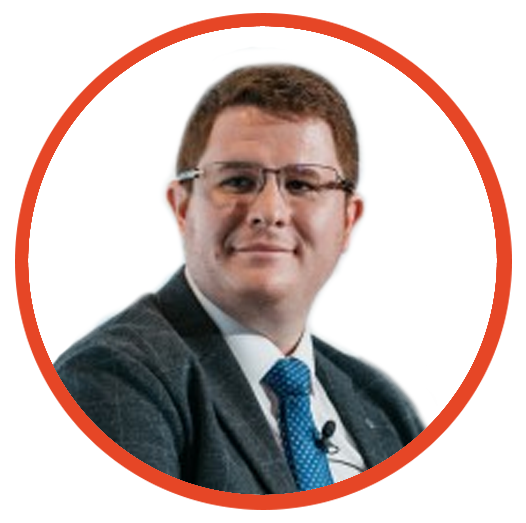 Jose Rodrigo Juarez Cornelio, University of Leeds
Jose Rodrigo Juarez Cornelio, University of Leeds
